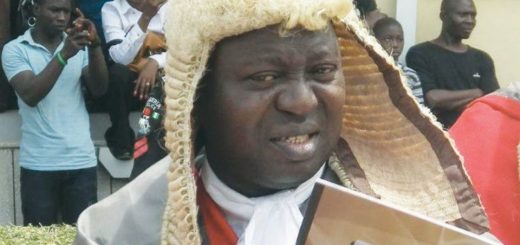The Lagos State Chief Judge, Justice Kazeem Alogba said there was the need for the judiciary to work more with the legal practitioners to tackle the phenomenon of frivolous cases.
Justice Alogba made these remarks at a reception at the Nigeria Law School in Lagos during the NBA’s Annual General Conference where he pointed out grim realities of the nuisance cases on the operations of the court.
Justice Alogba was very right in asserting that business persons file many cases that are unmeritorious not only contributes to the development of clogs in the wheel of the administration of justice delivery in the country but is also detrimental to the reduction of confidence of the public in the judiciary due to the delay in delivering justice.
He encouraged the legal practitioners to be more selective in the matters that they present to courts, and pursue only those which make a lot of legal sense. This he said would enable the control of backlog, the improvement of efficiency and consequently the regaining of the lost popularity of the judiciary among the citizens.
There is a current push for greater judicial reform in Nigeria and the change that the Chief Judge lobbies for echoes most of the ones currently being proposed.
Also speaking, the NBA President Yakubu Maikyau, SAN supported what Justice Alogba said and urged lawyers to defend the judiciary which he said is the only hope for the common man, they have to aspire to high ethical standards, discourage what he called selfish and unmeritorious cases, and collectively fashion out a way to ensuring that justice is not only sold to the highest bidder but is also accessible for everyone that needs it.
Maikyau pointed out that these are some of the measures under a process that NBA in conjunction with the Federal Ministry of Justice and the National Judicial Council aim at reestablishing a confident of the judiciary system and ensuring that the judiciary serves as an impartial institution to the Nigerian populace.



